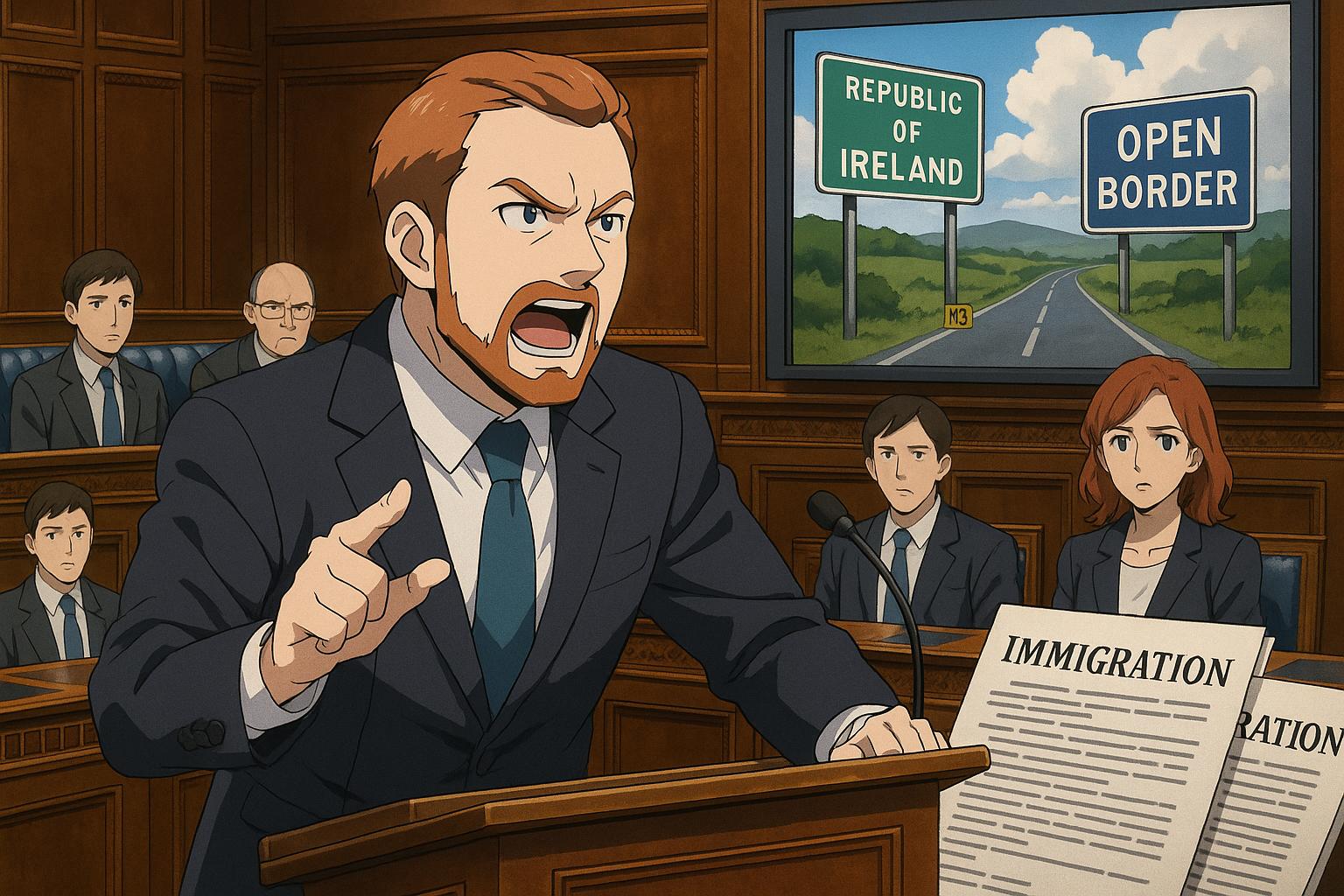Timothy Gaston, a TUV representative for North Antrim, has raised alarm over the implications of new UK immigration legislation during a debate in the Northern Ireland Assembly. Voicing concerns that Northern Ireland may become a "dumping ground" for illegal migrants, he highlighted the unique challenges posed by the region's open border with the Republic of Ireland. His remarks come in the wake of the Second Reading of the UK Government's immigration Bill, which seeks to tighten border control but has sparked significant debate.
In his speech at Stormont on 13th May, Gaston welcomed the government's proposed changes, which he believes represent a shift towards a more stringent immigration policy. He suggested that recent local electoral outcomes, reflecting rising public support for parties like Reform UK—known for their tough stance on immigration—have influenced the government's newfound urgency. “TUV wants to see boats crossing the channel stopped and immigration tightened up," he stated, calling for a serious commitment to border security.
However, Gaston’s primary concern lies with Northern Ireland's immigration framework. He observed that while immigrants can be intercepted when moving from the Republic into Northern Ireland, there is seemingly less scrutiny regarding their entry in the opposite direction. This loophole, he argued, poses significant risks for the region, which already faces complex immigration challenges heightened by its post-Brexit status.
The situation is further complicated by recent legal developments. On the same day as Gaston’s speech, the High Court in Belfast ruled that parts of the UK's Illegal Migration Act are incompatible with human rights provisions established under the Good Friday Agreement and the European Convention on Human Rights. This decision specifically affects the potential deportation of asylum seekers to Rwanda—a cornerstone of the UK government's current immigration strategy. The ruling raises urgent questions about how the new legislation will function in practice within Northern Ireland, particularly in light of ongoing tensions surrounding human rights compliance.
Gaston drew parallels between the present immigration Bill and the contentious Rwanda deportation scheme, emphasizing that the latter could face similar legal challenges. He warned that if the court were to find the Bill incompatible with existing laws, Northern Ireland might lack the necessary immigration controls, turning it into a haven for illegal immigrants. “This is a stark warning,” he said, urging the Labour Government to take immediate action to avert such an outcome.
In light of Gaston’s comments, the political landscape in Northern Ireland appears increasingly fraught. Opposition parties such as Sinn Féin, the SDLP, and the Alliance Party have expressed deep apprehension regarding measures they perceive as excessively restrictive or detrimental to human rights. The recent court ruling has intensified these discussions, prompting concerns that Northern Ireland's immigration policies could diverge significantly from those in the rest of the UK, potentially inviting legal challenges and further political instability.
Gavin Robinson, interim leader of the Democratic Unionist Party, echoed these sentiments by calling for a robust, unified immigration policy that extends to Northern Ireland. His comments reflect the broader anxieties among some political factions that the region could attract a surge of asylum seekers if it operates under different legal parameters than the rest of the UK.
As the legislation continues its journey through Westminster, the growing dialogue surrounding immigration in Northern Ireland underscores the urgent need for clarity on post-Brexit rules. The complex interplay of local sentiments, legal statutes, and intergovernmental relations will undoubtedly shape the future of immigration policy in this vibrant yet vulnerable region.
Reference Map
1: [1]
2: [2], [3], [5]
3: [4]
4: [6]
5: [7]
Source: Noah Wire Services
